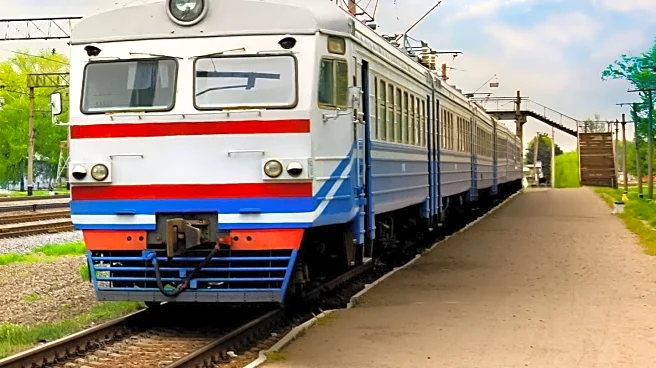What's Happening?
Tens of thousands of Breslov pilgrims are traveling to Uman, Ukraine, for Rosh Hashanah, facing increased challenges due to the ongoing Russia-Ukraine conflict. The journey to Rabbi Nachman's grave has become more complex since the full-scale invasion of Ukraine in 2022, with long lines and delays at land border crossings. To mitigate these issues, many pilgrims are choosing to travel by train across Europe, a solution that has gained popularity in recent years. This mode of travel offers a more restful experience, allowing pilgrims to arrive refreshed for the holiday prayers. The demand for train travel is high, with special charter trains organized to cater to the pilgrims, providing a spiritual atmosphere and additional services.
Why It's Important?
The shift to train travel highlights the adaptability and resilience of the Breslov community in maintaining their religious traditions despite geopolitical challenges. This development underscores the impact of the Russia-Ukraine conflict on international travel and religious practices. The increased demand for train travel has also spurred an industry dedicated to organizing these journeys, reflecting the economic opportunities arising from religious tourism. The situation illustrates the broader implications of conflict on cultural and religious exchanges, emphasizing the need for innovative solutions to preserve such traditions.
What's Next?
As the conflict continues, the reliance on train travel may become a permanent fixture for Breslov pilgrims, potentially leading to further developments in the travel industry catering to religious tourism. Authorities in Ukraine and neighboring countries may need to enhance infrastructure and streamline processes to accommodate the influx of pilgrims. Additionally, the Breslov community may continue to explore alternative routes and methods to ensure safe and efficient travel to Uman, adapting to evolving geopolitical circumstances.
Beyond the Headlines
The choice of train travel over traditional air routes reflects a deeper cultural and spiritual commitment among Breslov pilgrims, prioritizing the journey's spiritual significance over convenience. This trend may influence other religious communities facing similar challenges, promoting a shift towards more immersive and mindful travel experiences. The situation also raises ethical considerations regarding the balance between religious practices and geopolitical realities, highlighting the need for dialogue and cooperation between religious groups and governments.










